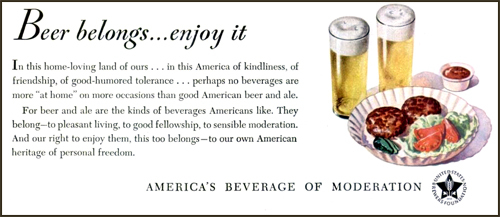You had to hide it somewhere that no one would find it: your very first record, tape, CD– whatever medium– that Mom and Dad didn’t approve of. You had to listen to it through headphones or when they were out of the house. You had to do this because you knew it was an act of rebellion; your parents did not want you hearing that music performed that way with those lyrics, and you decided that you wouldn’t obey them. According to the new documentary Rockin’ The Wall, that simple moment of defiance, experienced collectively by the citizens of the Soviet Union, contributed to and may have even defined the fall of the Berlin Wall.
[youtube GiZDc4jPOtY nolink]
—-
Co-produced by Big Hollywood contributor Larry Schweikart, who first wrote about this issue in his book 7 Events That Made America America, and narrated by Adam Baldwin, Rockin’ the Wall gives viewers an intimate look into life in East Berlin, where citizens were restricted by a literal concrete wall from the same free enterprise and thought that their neighbors in the Western half of the city enjoyed. Commentators in the film range from bow tie-wearing historians to shaggy-haired rock musicians, with the most interesting tidbits coming from individuals who had lived under Soviet rule in East Berlin (some of whom escaped before the wall fell). Noting that this was the first time in history where walls were used to keep citizens in rather than invaders out, the film conveys a palpable feeling of the quiet rebellion simmering against a regime so petty as to restrict women from putting their hair in ponytails.
The film’s thesis, that rock and roll music brought down the wall, seems spurious at first. After its fast-paced introduction, we’re treated to a montage of aged musicians opining on the nature of rock and roll, how it embodies liberty and rebellion, and we’re thinking, “Okay, but how does this relate to–” right as director Marc Leif unleashes a barrage of information that convincingly portrays rock music as the driving force of anti-Communist subversion. We learn about Radio Free Europe, whose modern music penetrated the wall and was forbidden by the Soviets. We learn about the black market for Western records, where demand was so high that a single LP could cost 1/10th of a week’s wages. We learn about the conferences for young people warning them of the physical and mental dangers of rock and roll.
We hear the testimony of artists who lived behind the Wall, how Western music represented the freedom they desired and confirmed the inauthentic nature of state-subsidized music (and therefore, the state itself). We hear how the messages of social change (sometimes incarnated in the bands themselves, such as the interracial Southern blues-rock group “Mother’s Finest”) resonated deeply with the East Berliners. Finally, we get the perspective of Western musicians who were able to tour behind the Iron Curtain, including one funny incident involving Mother’s Finest and a policeman fan. When you think that the film can’t take its argument any further, there’s an anecdote involving Leslie Mandoki, a Hungarian music producer, and Mikhail Gorbachev that lays a triumphant capstone on the wall of evidence that had been previously prevented.
The film is well-produced and chock full of all sorts of modern videography flourishes: split-screen, shallow focus, re-enactment B-roll footage, and the like. The split-screen can get a little distracting and displays varying degrees of polish throughout the film’s run-time, but thankfully there’s always a steady shot of the interviewees. Even when the subject shifts to the depressing conditions of Soviet life, the talking heads keep the tone light-hearted, so the climax of the film, chronicling the fall of the wall, isn’t quite the catharsis it could be, but it’s still poignant if not powerful. The soundtrack features a nice mix of classic and retro rock that thankfully doesn’t distract from the information being presented.
Rockin’ the Wall is not partisan in any way. No mention is made of Democrats or Republicans. The only dichotomy at play is Freedom and Communism. Ronald Reagan’s “Tear down this wall” quote gets its due, but the most rousing line comes from the Democrat John F. Kennedy: “Freedom has many difficulties and democracy is not perfect, but we have never had to put a wall up to keep our people in.” If anyone finds the film hyper-partisan, simple-minded, jingoistic– any of the typical leftist canards– that person will never understand the difference between freedom and tyranny or why it’s important to know it. How anyone can carry water for an ideology that, without exception, has led ruthless violence, and draconian control over the minutiae of personal lives is totally beyond me.
It’s ironic how some Westerners labeled rock and roll as degeneracy when it became, in essence, a liberating force for the Soviet world. It’s a reminder that art and society can interact in extremely unexpected ways. Whether it’s Chinese musicians risking muggings from the police to play Handel’s Messiah as defiant public worship; whether it’s North Korean peasants discovering that their government’s propaganda is false through old VHS copies of 1980s American soaps; or whether it’s a young man who finds out that Stasi have been in his apartment because his Yes record is scratched; there’s a very clear reason why those who seek to restrict liberty also seek to restrict art. And as of right now, there’s no reminder of that truth that’s quite as informative and entertaining as Rockin’ the Wall.

COMMENTS
Please let us know if you're having issues with commenting.